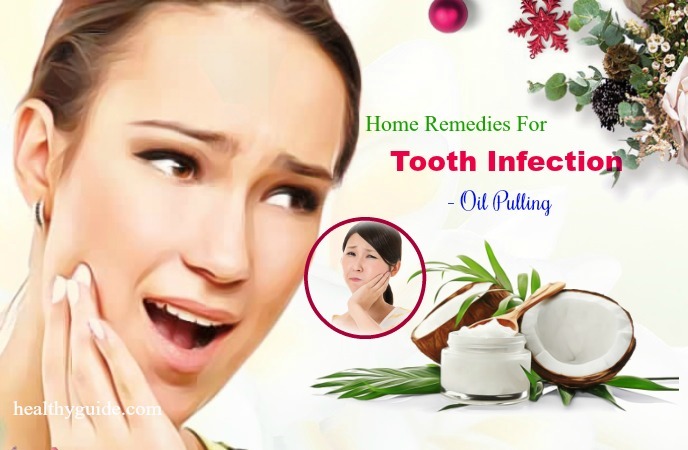12 Mouth Wash Remedies To Heal Tooth Infection

Tooth infections can be a painful and unsettling experience, often accompanied by symptoms like swelling, redness, and fever. While it’s essential to consult a dentist for professional diagnosis and treatment, there are several mouthwash remedies that can help alleviate the discomfort and Accelerate the healing process. Here, we’ll delve into 12 effective mouthwash remedies to combat tooth infections, exploring their benefits, preparation methods, and usage guidelines.
1. Salt Water Mouthwash
A simple yet effective remedy, salt water mouthwash helps reduce swelling and kills bacteria. Mix 1 teaspoon of salt in a cup of warm water and swish it around your mouth for a few minutes before spitting it out.
2. Hydrogen Peroxide Mouthwash
Hydrogen peroxide is known for its antibacterial properties, making it an excellent choice for combating tooth infections. Dilute hydrogen peroxide with water (1:1 ratio) and use it as a mouthwash. However, be cautious not to swallow it.
3. Baking Soda Mouthwash
Baking soda can help neutralize acids in the mouth and reduce infection. Mix 1 teaspoon of baking soda with water to create a paste, and then add it to a cup of water to make a mouthwash.
4. Essential Oil Mouthwash (Tea Tree Oil)
Tea tree oil is renowned for its antimicrobial properties. Add a few drops of tea tree oil to water and use it as a mouthwash. It can help combat bacteria and reduce inflammation.
5. Aloe Vera Mouthwash
Aloe vera has anti-inflammatory properties that can soothe the gums and mouth. You can use aloe vera juice as a mouthwash or mix it with water.
6. Turmeric Mouthwash
Turmeric contains curcumin, which has potent anti-inflammatory and antibacterial properties. Mix turmeric powder with water to create a paste, then dilute it further with water to make a mouthwash.
7. Gargling with Apple Cider Vinegar
Apple cider vinegar has antibacterial properties and can help balance the pH in your mouth. Mix apple cider vinegar with water (1:2 ratio) and gargle with it.
8. Lemongrass Oil Mouthwash
Lemongrass oil has antimicrobial properties that can help combat tooth infections. Add a few drops of lemongrass oil to water and use it as a mouthwash.
9. Clove Oil Mouthwash
Clove oil is known for its analgesic and antibacterial properties, making it effective for pain relief and infection control. Mix a few drops of clove oil with water and use it as a mouthwash.
10. Eucalyptus Oil Mouthwash
Eucalyptus oil has anti-inflammatory properties that can help reduce swelling and combat infection. Add a few drops of eucalyptus oil to water and use it as a mouthwash.
11. Neem Oil Mouthwash
Neem oil is known for its antibacterial and anti-inflammatory properties, making it an effective remedy against tooth infections. Mix neem oil with water and use it as a mouthwash.
12. Ginger Mouthwash
Ginger has anti-inflammatory properties that can help soothe the gums and mouth. You can use ginger juice as a mouthwash or mix it with water.
What is the best home remedy for a tooth infection?
+One of the most effective home remedies for a tooth infection is using a salt water mouthwash. It helps reduce swelling, kills bacteria, and promotes healing. Mix 1 teaspoon of salt in a cup of warm water, swish it around your mouth for a few minutes, and then spit it out.
Can I use essential oils as a mouthwash for tooth infection?
+Yes, certain essential oils like tea tree oil, lemongrass oil, and clove oil have antimicrobial properties that can help combat tooth infections. However, always dilute the essential oil with water and do not swallow it. A few drops of essential oil in a cup of water is a safe and effective ratio.
How often should I use a mouthwash remedy for a tooth infection?
+It's recommended to use a mouthwash remedy 2-3 times a day for a tooth infection. However, the frequency may vary depending on the severity of the infection and the specific remedy you're using. Always consult with a dentist for personalized advice.
In conclusion, while these mouthwash remedies can provide relief and support the healing process, it’s crucial to consult a dentist for proper diagnosis and treatment. A dentist can prescribe antibiotics if the infection is severe and provide guidance on the best course of action. Remember, prevention is key, and regular dental check-ups, along with good oral hygiene practices, can help prevent tooth infections in the first place.